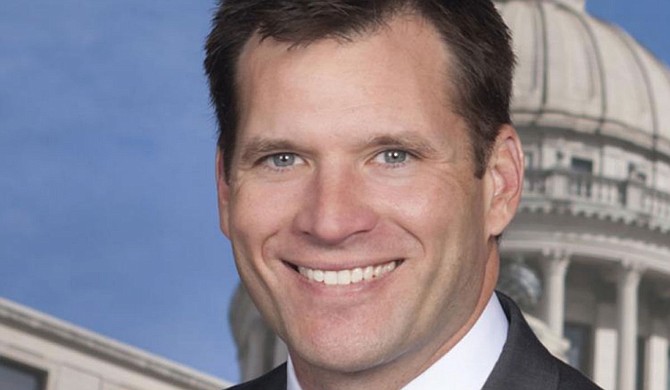Senate Constitution Committee Chairman Chris Johnson, a Republican from Hattiesburg, said the final proposal could be more flexible, in case Mississippi moves back up to five districts or goes down to three. Photo courtesy Mississippi House of Representatives
JACKSON, Miss. (AP) — Mississippi could try to clear up a problem with its initiative process.
The state constitution says people can petition to get issues on the ballot by collecting an equal number of signatures from each of five congressional districts.
That was written during the 1990s, when Mississippi had five districts. Then, because Mississippi grew more slowly than many other states, it dropped to four congressional districts after the 2000 Census.
Language dealing with the initiative process has not been updated. A proposal that's now moving forward would make the change from five districts to four, for the purpose of signature-gathering. Senate Constitution Committee Chairman Chris Johnson, a Republican from Hattiesburg, said the final proposal could be more flexible, in case Mississippi moves back up to five districts or goes down to three.
Senate Concurrent Resolution 501 passed the Senate Constitution Committee on Monday, and it moves to the full Senate for more debate. If the Senate and House both agree, the proposal would go on the statewide ballot.
The state attorney general's office issued a legal opinion years ago saying petitioners should continue using the five congressional districts from the 1990s to gather signatures for initiatives. That process was used to get Initiative 65, a medical marijuana proposal, on the November 2020 ballot.
Voters approved Initiative 65, and the state Health Department is supposed to create regulations for a medical marijuana program by the middle of this year. But Madison Mayor Mary Hawkins Butler sued the state to try to block the program. Her lawsuit argues that the initiative process is flawed because signatures were gathered from the five outdated congressional districts. She opposes Initiative 65 because it would limit cities' ability to regulate zoning for medical marijuana establishments.
In papers filed Dec. 28, state attorneys argued that Mississippi has two sets of congressional districts — one set used for congressional elections and one set used for other purposes.
The Mississippi Supreme Court said last week that it will hear arguments in the lawsuit on April 14.



Comments
Use the comment form below to begin a discussion about this content.
comments powered by Disqus